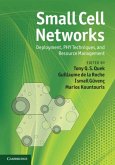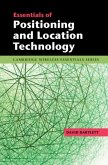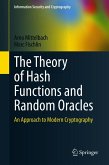This book discusses the theoretical limits of information transfer in random wireless networks or ad hoc networks, where nodes are distributed uniformly in space and there is no centralised control. It provides a detailed analysis of the two relevant notions of capacity for random wireless networks - transmission capacity and throughput capacity. The book starts with the transmission capacity framework that is first presented for the single-hop model and later extended to the multi-hop model with retransmissions. Reusing some of the tools developed for analysis of transmission capacity, a few key long-standing questions about the performance analysis of cellular networks are also provided for the benefit of students. The discussion goes further into the concept of hierarchical co-operation that allows throughput capacity to scale linearly with the number of nodes. The author finally discusses the concept of hierarchical co-operation that allows throughput capacity to scale linearly with the number of nodes.
Dieser Download kann aus rechtlichen Gründen nur mit Rechnungsadresse in A, B, BG, CY, CZ, D, DK, EW, E, FIN, F, GR, HR, H, IRL, I, LT, L, LR, M, NL, PL, P, R, S, SLO, SK ausgeliefert werden.









